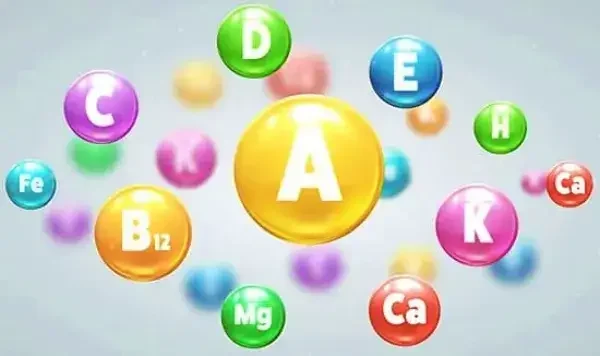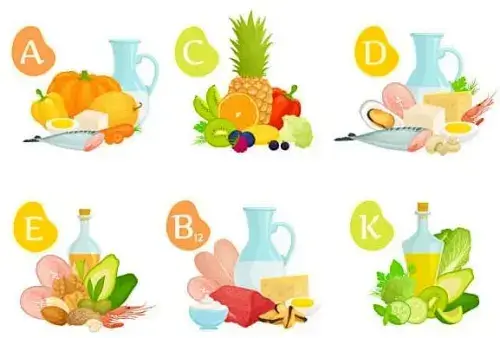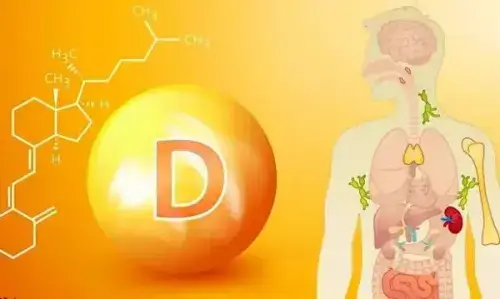Essential Vitamins. Let’s face it… I won’t be saying anything revolutionary. As we age, many things in life begin to change. Sooner or later, we all start thinking about our health.
Often, that thought arrives later than it should. But the good news is it’s never too late to make a change! So let’s start by asking:
How much do you actually know about essential vitamins?
Some people track every milligram of vitamins in their diet when they’re young, while others don’t pay attention to them at all. But the truth is, certain vitamins and minerals deserve our focus — both for immediate benefits and long-term health.
Essential Vitamins Before the Age of 35.
In your younger years, health often feels like a given. But the choices you make now lay the groundwork for your future well-being. Let’s take a closer look at a few essentials.
Vitamin E.
Vitamin E plays a crucial role in reproductive health — it supports sperm production in men and fertility and pregnancy in women. Beyond that, it’s a powerful antioxidant.
Studies show that consuming 400–800 milligrams of natural vitamin E (sourced from food) daily can reduce the risk of cardiovascular diseases by 25–30% and improve cognitive performance by up to 36%.
For men, regular vitamin E intake is linked to a 32% lower risk of developing prostate cancer.
Where to Find It:
Vitamin E is most abundant in plant-based oils. For example:
• 100g of sunflower oil contains 42–56mg
• Soybeans — 114mg
• Peanuts and mustard seeds — around 33–34mg
Even olive oil, although healthy, contains only 13mg per 100g. Vitamin E is also found in the seeds used to press these oils, as well as in young plant shoots and leafy greens.
Vitamin B9 (Folic Acid).
Folic acid is vital, especially during pregnancy, for the healthy development of the baby’s brain and nervous system.
If a breastfeeding mother doesn’t consume enough folic acid, her baby won’t receive sufficient amounts through breast milk which may affect the child’s neural development.
But folic acid isn’t only for expectant mothers. Adults also need it for the proper function of the circulatory, digestive, and nervous systems.
Where to Find It:
Folic acid is most concentrated in green leafy vegetables. Just 500g of salad leaves can cover your daily requirement.
Other excellent sources include spinach, Brussels sprouts, broccoli, and asparagus. Interestingly, meat particularly liver is also rich in folic acid.
For example:
• 150g of beef or pork liver
• 350g of cod liver
Both provide your full daily intake. Folic acid is also present in cottage cheese (though you’d need to eat around 1kg!), whole grains, legumes, and yeast.
Vitamins Between Ages 35–45.
This stage of life is often marked by professional and personal stability but also the first signs of aging. Fine lines appear, and health problems might sneak in.
That’s why, along with the vitamins mentioned earlier, these are worth special attention:
Vitamin A (Retinol) and Beta-Carotene.
Vitamin A is essential for healthy cell division, vision, skin, hair, and nails. A diet rich in beta-carotene, which the body converts into vitamin A, significantly lowers the risk of heart disease.
Consuming beta-carotene-rich vegetables daily can reduce the risk of coronary heart disease by nearly half. Vitamin A also boosts immune cell activity by about 27%.
Where to Find It:
Vitamin A is found only in animal products like egg yolks, butter, and organ meats. However, it’s important to note that vitamin A overdose can be toxic.
The recommended daily intake is 900 micrograms, and exceeding twice that amount can cause digestive and nervous system issues.
Beta-carotene, on the other hand, is a safer plant-based alternative, found in most yellow, orange, and green vegetables. Besides vitamin A, a healthy adult should aim for 5mg of beta-carotene daily.
Vitamin C (Ascorbic Acid).
The older we get, the more essential vitamin C becomes. It raises levels of “good” cholesterol (HDL) by 13% and lowers “bad” cholesterol (LDL) by 17%.
A deficiency can double the risk of stroke, and optimal vitamin C intake improves collagen production, slowing down wrinkle formation by 19% and increasing bone density by 15%.
People who maintain consistent vitamin C intake over 10 years lower their risk of developing cataracts by an impressive 77%.
Where to Find It:
The richest natural source is raw cabbage. You can meet your daily requirement with:
• 150g of white cabbage
• 100g of cauliflower
Cooking destroys vitamin C, so if the cabbage is cooked or fermented, you’ll need larger portions — around 300g or more.
Vitamins After Age 45.
This is the time when health starts to take center stage. Alongside regular vitamins, some deserve extra attention:
Vitamin D.
Vitamin D is essential for calcium absorption and maintaining bone density. After age 65, regular vitamin D intake reduces the risk of death from cardiovascular diseases by 29%.
It also lowers the risk of atherosclerosis and certain cancers.
Vitamin D helps the body absorb calcium and phosphorus, prevents rickets in children, protects teens and adults from tooth decay and gum disease, and defends against osteoporosis.
It also strengthens the immune system and enhances the body’s ability to fight infections.
Where to Find It:
Vitamin D is produced in the skin when exposed to sunlight. If possible, aim to spend 5–15 minutes a day outdoors with your face and hands uncovered. In terms of diet, vitamin D is mainly found in fish oil and egg yolks.
Vitamin K.
Vitamin K plays a vital role in blood clotting and the mineralization of bones and teeth. A deficiency can manifest as dark under-eye circles and bruising.
Where to Find It:
While vitamin K is synthesized by gut bacteria, this process slows with age. Doctors recommend eating more spinach, veal, and liver to meet daily needs.
Vitamin B12.
Vitamin B12 is key to red blood cell formation, amino acid and DNA synthesis, and the healthy function of the liver and nervous system.
Natural Supplements Worth Considering.
• Valerian Root Extract: Calms the nervous system, reduces anxiety, relieves muscle spasms, lowers blood pressure, and improves sleep quality.
• Bergamot Oil: Boosts the immune system, helps fight infections, and soothes irritated skin and mucous membranes.
• Bishofite: A mineral complex similar to Dead Sea salts, known for its long-lasting anti-inflammatory properties.
• Bromelain: A natural enzyme from pineapples that supports digestion, cleanses the body, prevents fat accumulation, and promotes weight loss.
Vitamin C, The Essential Antioxidant.
Vitamin C protects cells from oxidative stress, supports hormone and collagen production, assists in bile acid metabolism, and strengthens both the immune and nervous systems.
It’s vital for maintaining healthy bones, teeth, cartilage, gums, and skin.
Have a Great Day!





